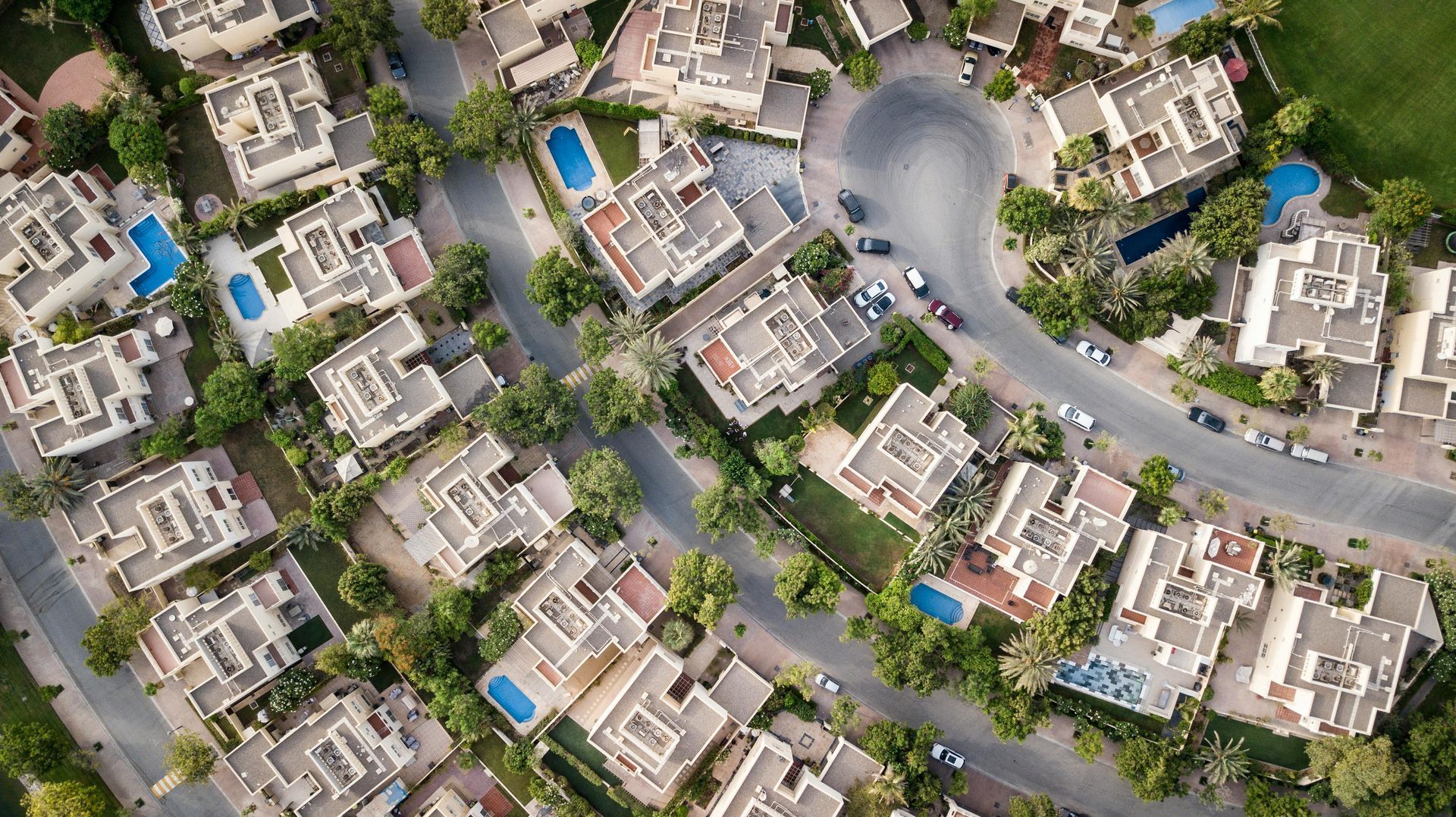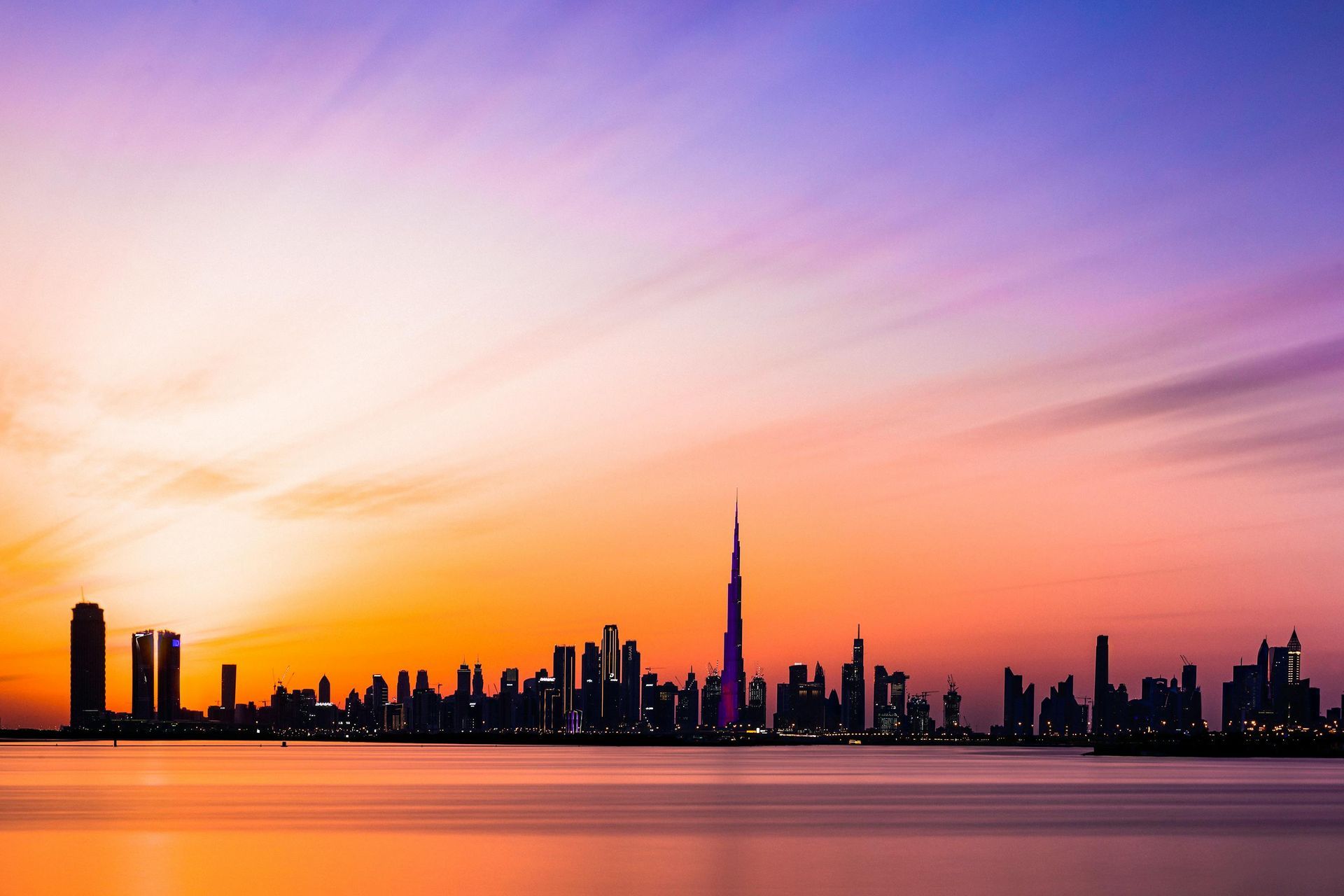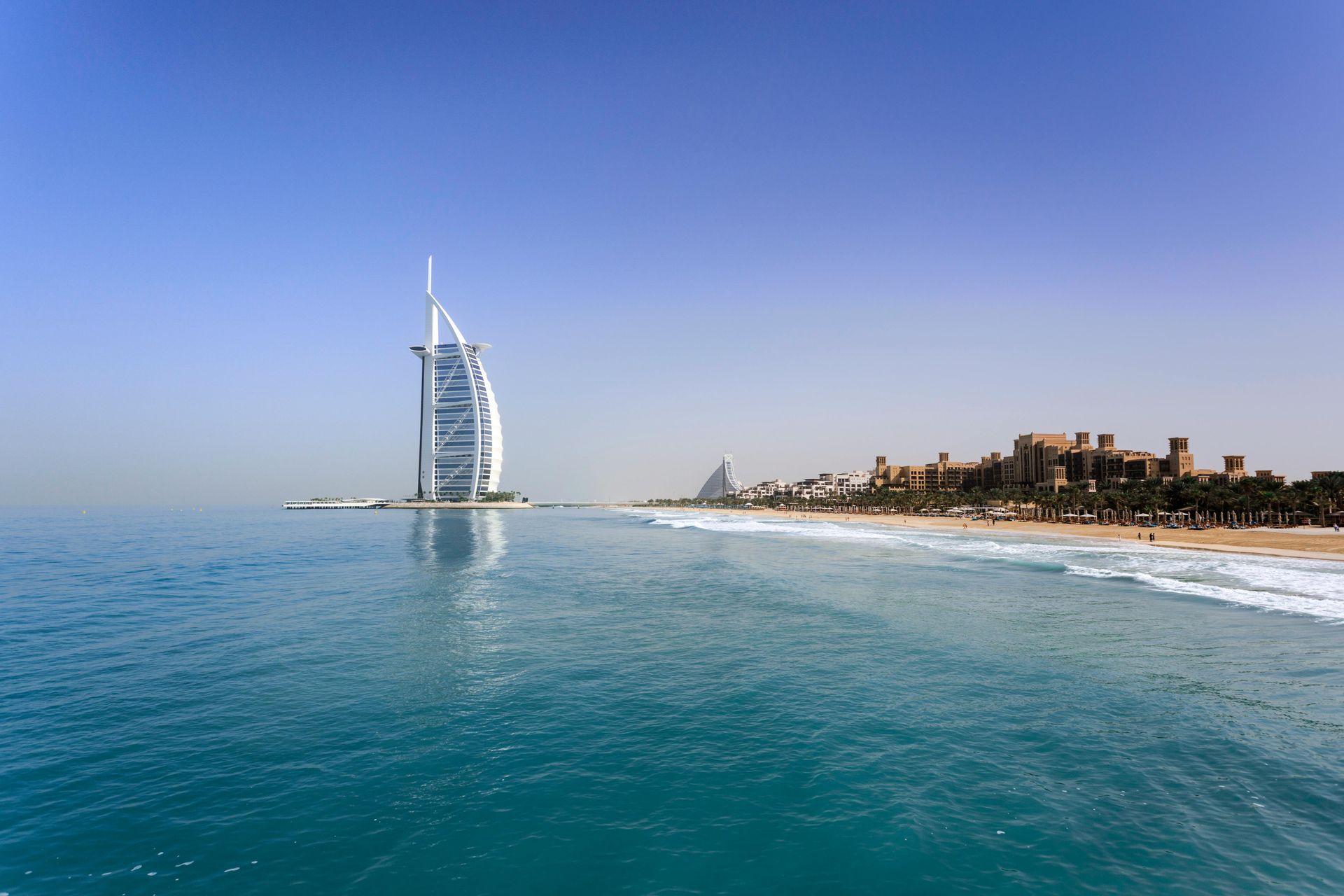Dubai: A Sun-Drenched Oasis of Investment Opportunity
Introduction
Dubai's strategic location, ambitious vision, and investor-friendly policies make it a compelling destination for those seeking lucrative real estate investment opportunities and a vibrant lifestyle. Dubai, a city synonymous with luxury and innovation, has rapidly transformed itself from a modest pearl-diving town into a global hub for business, tourism, and investment. Its strategic location at the crossroads of East and West, coupled with a stable economy and progressive government policies, has made it a magnet for individuals and families seeking a dynamic and rewarding lifestyle.
While some may perceive Dubai as solely a playground for the wealthy, a deeper dive reveals a city built on a foundation of strategic planning, economic diversification, and a commitment to sustainable development. This makes it an attractive destination not just for tourists, but for those seeking long-term investment and a high quality of life.
Why Dubai? A Deep Dive into the City's Allure
- Strong Economic Growth: Dubai's economy is a testament to strategic diversification. While initially reliant on oil, the emirate has successfully transitioned to a knowledge-based economy, with key sectors including tourism, trade, logistics, finance, and technology. This robust economic foundation is further strengthened by the government's commitment to innovation and sustainable development. The emirate's GDP is expected to grow by 4.5% in 2024 and continue on an upward trajectory, driven by mega-events like Expo 2020 and ambitious infrastructure projects. This consistent growth provides a stable backdrop for real estate investment, ensuring long-term value appreciation (International Monetary Fund).
- Tourism: Dubai has established itself as a world-leading tourist destination, attracting millions of visitors annually with its iconic landmarks, luxurious hotels, and diverse entertainment options. This thriving tourism sector fuels the demand for hospitality and residential properties, creating a vibrant rental market for investors.
- Trade and Logistics: Dubai's strategic location and world-class infrastructure have positioned it as a major global trading hub. The emirate's ports and airports handle a significant volume of international trade, supporting a thriving logistics sector and creating numerous business opportunities.
- Finance: Dubai's financial sector is a key driver of economic growth, with a well-regulated environment and a growing number of international financial institutions. This provides investors with access to a wide range of financial services and investment opportunities.
- Technology: Dubai is actively fostering a thriving technology ecosystem, attracting startups and established tech companies alike. This focus on innovation drives economic growth and creates new opportunities for investors in emerging sectors.

- Thriving Real Estate Market: Dubai's real estate market has demonstrated remarkable resilience and consistent growth, even amidst global economic challenges. Factors such as high rental yields, attractive payment plans, and a transparent legal framework contribute to its appeal for both local and international investors. Moreover, the government's proactive measures to regulate the market and ensure investor protection further enhance confidence (Dubai Land Department).
- High Rental Yields: Dubai's strong rental market offers investors the potential for attractive returns on their investment. The high demand for rental properties, driven by a growing population and a thriving tourism sector, ensures a steady stream of rental income.
- Attractive Payment Plans: Developers in Dubai offer flexible payment plans, making it easier for investors to purchase properties. These plans often include post-handover payment options, reducing the upfront financial burden.
- Transparent Legal Framework: Dubai has a clear and transparent legal framework for property ownership, ensuring investor protection and facilitating smooth transactions. The government's commitment to upholding property rights instills confidence in the market.
- Regulatory Measures: The Dubai Land Department (DLD) actively regulates the real estate market to ensure transparency and protect investor interests. Measures such as escrow accounts and stringent licensing requirements for real estate agents contribute to a secure and reliable investment environment.
- Strategic Location and Connectivity: Situated at the crossroads of Europe, Asia, and Africa, Dubai offers unparalleled connectivity to the world. Its world-class airport and seaport facilitate seamless travel and trade, making it an ideal location for businesses and individuals with global aspirations (Dubai Airports).
- Dubai International Airport: As one of the busiest airports in the world, Dubai International Airport connects the emirate to over 240 destinations across six continents. This global connectivity makes Dubai a convenient hub for business travel and international trade.
- Jebel Ali Port: The largest man-made harbor in the world, Jebel Ali Port handles a significant portion of the region's maritime trade. Its strategic location and efficient operations contribute to Dubai's position as a global logistics hub.
- Ease of Travel: Dubai's visa policies facilitate travel for individuals from many countries, making it easy to visit, work, and reside in the emirate. This open-door policy contributes to Dubai's cosmopolitan atmosphere and attracts talent from around the world.

- Tax-Friendly Environment: Dubai's tax-friendly policies, including zero income tax and no property tax, are a major draw for investors and expatriates. This favorable tax regime allows residents to maximize their earnings and investments, further enhancing the appeal of Dubai as a place to live and work (Government of Dubai).
- Zero Income Tax: The absence of income tax allows residents to retain a larger portion of their earnings, increasing disposable income and encouraging investment.
- No Property Tax: Unlike many other countries, Dubai does not impose property taxes, reducing the ongoing costs of property ownership and making it a more attractive investment proposition.
- Business-Friendly Taxation: Dubai offers a competitive tax environment for businesses, with low corporate tax rates and various tax incentives. This encourages entrepreneurship and attracts foreign investment.
- Visionary Leadership and Ambitious Plans: Dubai's leadership has a clear vision for the future, with ambitious plans to further solidify its position as a global leader. These plans demonstrate a commitment to sustainable development, economic diversification, and enhancing the quality of life for residents. Key initiatives include:
- Dubai 2030: This comprehensive urban masterplan aims to enhance the city's infrastructure, promote sustainable development, and create a world-class living environment for residents. It focuses on creating a balanced and integrated city with a focus on community well-being, environmental sustainability, and economic growth (Dubai Municipality).
- Dubai 2040 Urban Master Plan: This ambitious plan seeks to transform Dubai into a "people-centric" city, focusing on enhancing quality of life, promoting sustainable development, and fostering a thriving economy. It emphasizes creating a vibrant and inclusive city with a focus on walkability, green spaces, and public transportation (Dubai Media Office).
- Dubai 2050: This long-term strategy outlines Dubai's vision to become a global leader in innovation, sustainability, and happiness. Key goals include achieving net-zero emissions, diversifying the economy, and enhancing social well-being. This plan highlights Dubai's commitment to long-term sustainability and its ambition to be a model city for the future (The Executive Council of Dubai).
Addressing Potential Counterarguments:
- High Cost of Living: While Dubai's cost of living can be relatively high compared to some other cities, it is important to consider the overall value proposition. The emirate offers a high quality of life, excellent infrastructure, a safe and secure environment, and a cosmopolitan atmosphere. Moreover, the tax advantages and potential for high returns on investment can offset the higher costs. Furthermore, Dubai offers a range of housing options to suit different budgets, from affordable apartments to luxurious villas.
- Competition: Dubai's real estate market is competitive, but this also reflects its dynamism and attractiveness. Conducting thorough research, seeking expert advice, and carefully evaluating investment options can help mitigate risks and maximize returns. Diversifying your investment portfolio and considering emerging areas with high growth potential can also be beneficial.
- Dependence on Expatriates: Dubai's population is largely composed of expatriates, which can raise concerns about long-term stability. However, the government's efforts to attract and retain talent, coupled with its open and inclusive policies, contribute to a stable and diverse community. Furthermore, the continuous influx of expatriates ensures a sustained demand for real estate.
- Environmental Concerns: Dubai's rapid development and desert climate present environmental challenges. However, the government is actively addressing these concerns through initiatives such as promoting sustainable building practices, investing in renewable energy, and implementing water conservation measures. Dubai's commitment to sustainability is evident in its ambitious plans for the future, such as the Dubai 2050 strategy.
Tips for Investing in Dubai Real Estate:
- Research the Market: Familiarize yourself with the different areas of Dubai, property types, and market trends. Utilize online resources, attend property exhibitions, and consult with real estate professionals to gain a comprehensive understanding of the market.
- Consult with Experts: Seek advice from reputable real estate agents and legal professionals. They can provide valuable insights into market dynamics, legal requirements, and investment strategies.
- Choose the Right Property: Consider your investment goals, budget, and lifestyle preferences when selecting a property. Evaluate factors such as location, property type, amenities, and potential rental yield.
- Secure Financing: Explore financing options and secure pre-approval if necessary. Compare interest rates and loan terms from different banks to find the most favorable option.
- Understand the Legal Framework: Familiarize yourself with Dubai's property laws and regulations. Ensure that you understand the process of property purchase, registration, and ownership.
- Due Diligence: Conduct thorough due diligence before making an investment. Verify the developer's credentials, review the property documents, and inspect the property carefully.
- Consider Off-Plan Properties: Investing in off-plan properties can offer attractive pricing and payment plans. However, it is crucial to research the developer's track record and assess the project's feasibility.
- Long-Term Perspective: Real estate investment is a long-term commitment. Consider your investment horizon and choose properties with the potential for long-term value appreciation.

Useful Links:
- Dubai Land Department: https://dubailand.gov.ae/en/
- Dubai Municipality: https://www.dm.gov.ae/
- Government of Dubai: https://u.ae/en
- Bayut: https://www.bayut.com/ (Popular property portal)
- Property Finder: https://www.propertyfinder.ae/ (Another popular property portal)
References:
Dubai Airports. (n.d.). About Dubai Airports. https://dubaiairports.ae/
Dubai Media Office. (2021, March 13). Dubai 2040 Urban Master Plan. http://dubai2040.ae/en/
The Executive Council of Dubai. (n.d.). Dubai 2050. https://dubaisce.gov.ae/en/dsmstrategy2050/
International Monetary Fund. (2023). United Arab Emirates. https://www.imf.org/en/Countries/ARE
Government of Dubai. (n.d.). Dubai's economy.




